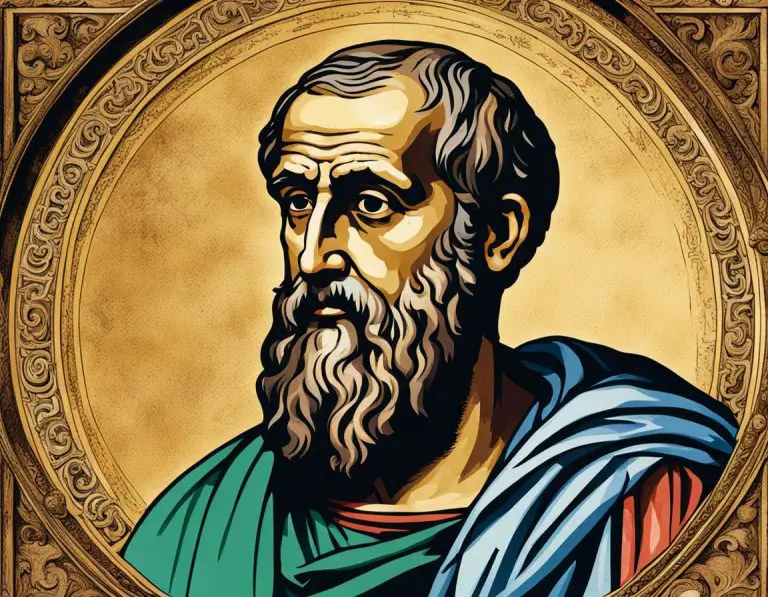Plato’s Theory of Justice
Plato’s theory of justice is deeply rooted in his famous work, “The Republic.” In this dialogue, Plato presents his idea of a perfectly just society, which he believes can only be achieved through a harmonious balance of three distinct classes: the rulers, the auxiliaries, and the producers. Each class is assigned specific roles and functions based on their innate abilities and virtues, with the rulers guided by wisdom, the auxiliaries by courage, and the producers by moderation.
Furthermore, according to Plato, justice in the individual mirrors justice in the state. He argues that the human soul is also divided into three parts – reason, spirit, and appetite – each corresponding to the three classes in society. When these parts are in harmony, with reason ruling over spirit and appetite, an individual achieves inner justice. This idea emphasizes the importance of self-discipline and aligning one’s desires with rationality, a key aspect of Plato’s ethical philosophy.
Unpacking the Notion of a Just Society
Exploring Plato’s theory of justice reveals a complex web of interconnected ideas that aim to construct an ideal society based on fairness and harmony. At the core of Plato’s notion of justice lies the belief that individuals should fulfill their social roles harmoniously, contributing to the greater good of the community. This concept suggests a well-ordered society where each part operates in unity, reflecting the harmony found in the ideal state.
Moreover, Plato posits that justice is not merely the absence of injustice but the establishment of a balanced society where each individual is assigned a role suited to their capabilities. In this view, a just society thrives when individuals adhere to their designated tasks without interfering with others’ responsibilities. By upholding this division of labor, Plato underscores the importance of cooperation and specialization in creating a harmonious social structure where each person contributes to the collective well-being.
Plato’s Metaphysics
Plato’s metaphysics delves into the fundamental nature of reality and existence. Central to his philosophy is the concept of Forms, which are the eternal, unchanging ideals that transcend the physical world. For Plato, the physical world is a mere reflection or imitation of these perfect Forms. He believed that true knowledge could only be obtained through contemplation of these Forms, as they represent the ultimate reality beyond the material realm.
In Plato’s metaphysical framework, the material world is considered imperfect and transient, while the realm of Forms is eternal and immutable. This dichotomy between the sensible world and the intelligible world forms the basis of his dualistic metaphysics. Through his allegory of the cave, Plato illustrates how individuals are often misled by the illusions of the physical world and emphasizes the importance of philosophical enlightenment to perceive the higher truths of the Forms.
Investigating the Nature of Reality
Plato’s exploration of the nature of reality delves deep into the concept of ideal forms versus material objects. He suggests that the physical world we see and experience is but a mere shadow or imperfect reflection of the true reality that exists beyond our senses. According to Plato, these ideal forms represent perfect models of all things, such as justice, beauty, and truth, which the material world merely imitates.
For Plato, reality is not found in the constantly changing and transient world we live in, but rather in the unchanging and eternal realm of forms. He believed that the physical world is characterized by imperfections and illusions, while the world of forms embodies ultimate truth and perfection. By contemplating these forms through reason and intellect, one can attain true knowledge and understanding of the fundamental nature of reality.
Plato’s Ethics
Plato’s Ethics delve deep into the realm of virtue and the pursuit of the good life. Central to Plato’s ethical philosophy is the idea that living a virtuous life leads to achieving true happiness and fulfillment. Plato argued that virtue is not merely a means to an end, but rather the essence of a good and meaningful life.
In Plato’s view, the key to living a virtuous life lies in aligning one’s actions with the universal truths of morality and reason. By cultivating virtues such as wisdom, courage, temperance, and justice, individuals can strive towards realizing their full potential and attaining inner harmony. Plato believed that by embodying these virtues, individuals could achieve a state of eudaimonia, or flourishing, which surpasses mere pleasure and material possessions.
Discussing Virtue and the Good Life
In Plato’s philosophy, the concept of virtue holds a central place in the quest for leading a good life. According to Plato, virtues such as wisdom, courage, justice, and moderation are interconnected and crucial for achieving a harmonious and fulfilling existence. He believed that individuals who cultivate these virtues within themselves are better equipped to navigate life’s complexities and achieve inner balance.
Plato’s emphasis on the importance of virtue underscores his belief that true happiness and fulfillment can only be attained through the pursuit of knowledge and moral excellence. By consistently practicing virtuous behavior and striving to align one’s actions with the greater good, individuals can cultivate a sense of purpose and inner harmony that transcends fleeting desires and worldly distractions. For Plato, the ultimate goal of life is to strive for the highest virtues and to live in accordance with reason and moral integrity.
Related Links
Review of Plato’s Allegory of the Cave
Top 10 Influential Ideas in Plato’s Philosophy

